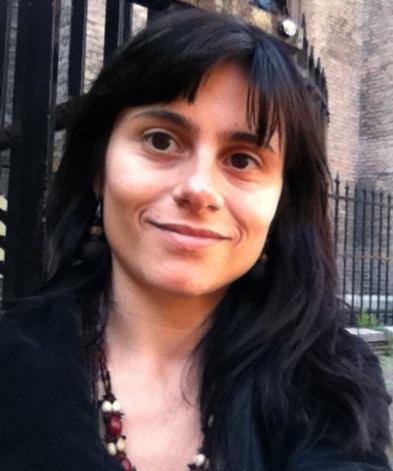Ongoing PhD projects MED
The following PhD projects are developed within the profile-area
Hovedinnhold
Mariya Bikova:
Gender and the global production of welfare in a Norwegian context
The PhD-project “Gender and the global production of welfare in a Norwegian context” is a study of the intersections between work, welfare and migration and is built around two main research interests:
1.The au pair-exchange programme as a form of female migration and
2. the au pair-exchange programme as a field where immigration policy, gender equality policy and welfare policy intersect, form and influence the lives of persons placed au pairs in Norway, their families and relations.
By approaching the au pair migration from these two analytical angles, I will explore how the phenomenon is linked to a larger process of female migration, and how the increased popularity of the au pair scheme in Norway can reveal insights about changing care cultures and social structures in both Norway and the countries where the au pairs come from.
Mercedes Biocca:
Articulation of subaltern politics and state power shape the local process of accumulation by dispossession
My research analyses the ways in which the articulation of subaltern politics and state power shape the local process of accumulation by dispossession. Taking a long-term historical perspective, I try to emphasize how such processes shape and are shaped by local histories of displacement, compliances and resistance My ethnography of two indigenous communities in the province of Chaco, Argentina explores the different perceptions and positionings regarding the expansion of soybean production. I am particularly interested in analysing how different subaltern groups, through a local rationality, perceive, experience and act upon the process of accumulation by dispossession.
Gisle Andersen:
Knowledge, morality and legitimacy: A knowledge-sociological analysis of the valuation principles of the Norwegian environmental policy.
The project explores the process of defining an environmental problem, how and by whom relevant scientific knowledge is defined and how this knowledge is used in Norwegian parliamentary debates. The objective is both to disentangle how processes of knowledge production and transformation are correlated with the formation of legitimate political alternatives and to map the valuations used by political actors arguing for specific political alternatives. Thus, the project aims to provide new empirical and theoretical knowledge on the relation between knowledge production and the articulation of values that is embedded in political actions and environmental regulation.
The main case study is scientific and political processes related to the on-going development of an environmental management plan for the Barents Sea and the sea areas off the Lofoten islands.
Data are;
a) verbatim reports from the Norwegian parliamentary debates on environmental problems related to cases (1970 – 2010)
b) scientific and policy documents and
c) interviews with natural scientists involved in the on-going work on the environmental management plan.
Ivar Eimhjellen:
From face-to-face to facebook? The role of web technologies in Norwegian civil society.
The aim of my doctoral thesis is to investigate, from different perspectives, the role of web technologies in the civic sphere of the Norwegian society. More specifically, I investigate the implications of web technologies for local voluntary organizations and for participation in the civil society. The dissertation consists of four journal articles and a general introduction. The research questions posed in the articles are
1) if communication through the Internet can strengthen local voluntary organizations,
2) what barriers might exist for implementing new communication technologies in local voluntary organizations,
3) how can web technologies shape and be shaped by organizational norms, and culture, and 4) how are new forms of web based civic participation diffused socially?
The theoretical perspectives supporting the articles are wide ranging and include organizational and institutional theory, structuration theory, network society- and network individualization theory, and diffusion theory. Also, the articles illustrate different approaches to the study of web technology use in the civil society, in terms of both methodology and data types. I use panel survey data of organizations, organizational website data merged with survey data, a qualitative case study approach, and survey data on individuals.
Carl Endre Espeland:
Political and social engagement among young Norwegians of visible minorities.
The project is about commitment to being a Norwegian with visible minorities. The aim is to study different forms of mobilization af collective action related to common interests and / or identity. The data consists of existing texts from selected organizations and networks as well as interviews with participants. The project is part of the project TRANSNAT.



